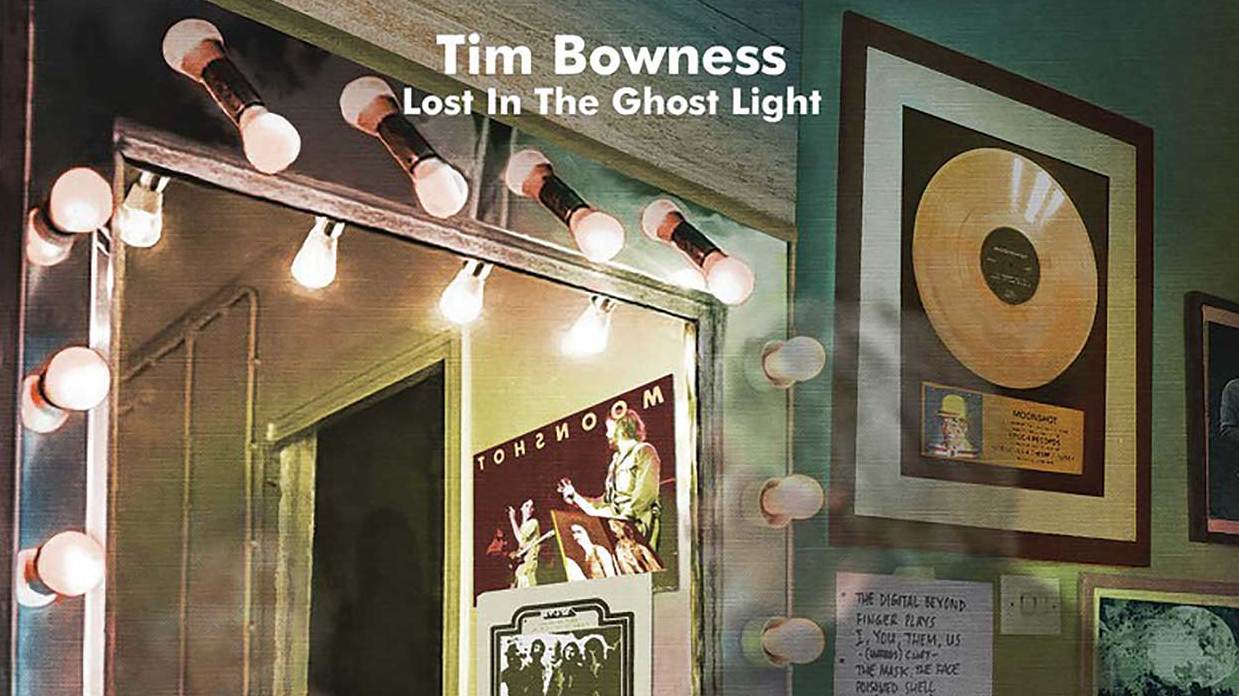With the recent sad passing of so many beloved rock icons, it’s all the more important that we appreciate those still standing. The ever-creative Tim Bowness takes this emotional logic a step further on his third solo record in four years, writing a bittersweet concept album dedicated to an imaginary character. Jeff Harrison was/is the leader of Moonshot, whose early psychedelic and progressive albums retain critical approval but whose decisions took him into bland, big-in-Germany MOR in the 80s and relative obscurity thereafter. Jeff, ageing, is frustrated by the ebbing of his muse, baffled by developments such as streaming and painfully aware of his own slide from inspiration to complacency. Moonshot, we should reiterate, don’t actually exist, but Bowness paints a poignant picture both lyrically and musically, taking us convincingly inside Jeff’s head. He knows enough about the relevant genre(s) to elevate what might have been pastiche to a grand opus in its own right.
It’s a lovely river of softly urgent songs and symphonic rock, guided by Bowness’ clean, emoting-averse vocals, which have now attained the precision of a Colin Blunstone or Al Stewart. He’s gathered quite a collective for this one, including Colin Edwin (Porcupine Tree), Bruce Soord (Pineapple Thief), Stephen Bennett (Henry Fool/No-Man) and Andrew Booker (Sanguine Hum/No-Man). On top of this are pertinent cameos from Camel’s Kim Watkins, David Rhodes (Kate Bush/Peter Gabriel guitarist) and a flute solo from Ian Anderson, no less. Long-time ally Steven Wilson mixed and mastered.
So the stories of Harrison’s inner turmoil – make your own theories about which rock stars make up his DNA – are told through epic ballads like the nostalgic Worlds Of Yesterday (‘no-one to blame/you’ve forgotten your aims’) and the regretful Moonshot Manchild (‘you’ve lost your sense of wonder/you’ve lost your golden touch’). Unlike Bread’s Guitar Man, Jeff does notice that the crowds are getting thin. There are flickers of and flashbacks to his youth, when his artistic fire burned brightly, and musical nods to Floyd, Genesis and Caravan, but the overall mood is of yearning for time lost, a furrow which Bowness has ploughed determinedly since the earliest No-Man music. While the narrative is a bold, self-aware and witty curveball in his own career, at core his songs stay true to that relentless vision of pathos as grandeur.
There’s a hint finally that poor old Jeff just might summon up again ‘the strength that lit the spark’. Or… he might not. Bowness, meanwhile, goes from strength to strength.

